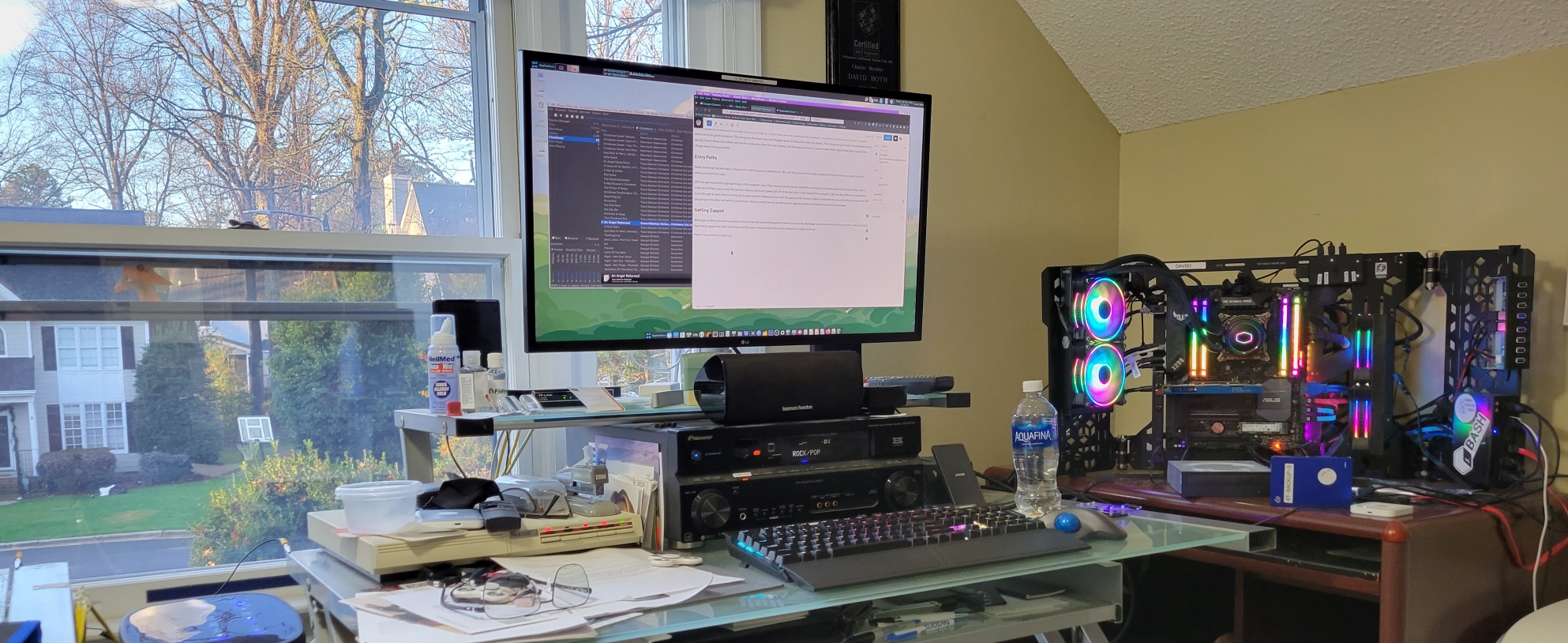The operating system you use on your computer is as important—or more so—than the hardware you run it on.
Scalability is extremely important; running the same operating system from phones (‘Droid), to laptops, to servers, and even the most powerful supercomputers on the planet can make life much simpler for the network administrator or the IT manager. Linux is the only operating system on the market today which can provide that level of scalability.
I run Linux on many different computers, from a Raspberry PI to servers, to a very powerful workstation. Linux also runs nearly all the supercomputers in the world and definitely runs the 500 of the most powerful ones.
The most important single choice you will make concerning your computer is that of the operating system which will create a useful tool out of it. Computers have no ability to do anything without software. If you turn on a computer which has no software program, it simply generates revenue for the electric company in return for adding a little heat to the room. There are far less expensive ways to heat a room.
The operating system is the first level of software which allows your computer to perform useful work. Understanding the role of the operating system is key to making informed decisions about your computer.
Typical Tasks
Your computer and its operating system are multitasking from the moment it boots up, the background tasks required to manage a multitasking environment take only a small fraction of the available CPU resources available on even modest computers. Those tasks include such internal tasks as the following.
- Memory management
- Network communications
- Managing processes, i.e., programs
- Managing the hard drives and other Input/Output (I/O) devices such as the keyboard, mouse, display, printers and so on.
We humans may have several programs running at a time, such as a word processor, an email program, a spreadsheet, perhaps a file manager and a web browser. But those programs usually do little or nothing until we give them instructions by typing words into the word processor or clicking on an email to display it. The computer still waits for us to catch up to it.
Multitasking
Linux, like most decent operating systems, can multitask. That means that it can do two, three or several things at the same time. For example, I have the Seti@Home program that runs constantly on all of my computers. I also have multiple instances of LibreOffice Writer – the Free and Open Source word processor – running at the same time. Along with Thunderbird email and a web browser. I also have several terminal emulators running and use them to login to various local and remote computers that I manage and have responsibility for.
Linux can also download and install its own updates automatically while performing any or all of the above tasks simultaneously—without the need for a reboot. Wait . . . what?!
That’s right. Linux does not need to reboot before, during or after installing updates or when installing new software. After a new kernel is installed, however, you may wish to reboot the computer to activate it, but you can do it whenever you want and not be forced to reboot four times during an update.
Multiuser
The multitasking functionality of Linux extends to its ability to host multiple users—tens or hundreds of them—all running the same or different programs at the same time on one, single computer.
Windows is not even remotely capable of this type of functionality.
Supercomputers
Linux powers the fastest supercomputers in the world. As of December 2017, 100% – all – of the top 500 computers in the world run Linux of one form or another. There are specialized distributions of Linux designed especially for supercomputers.
Supercomputers are very fast because many different calculations can be performed simultaneously. It is, however, very unusual for a single user to have access to the entire resources of a supercomputer. Many users share those resources, each user performing their own set of complex calculations.
